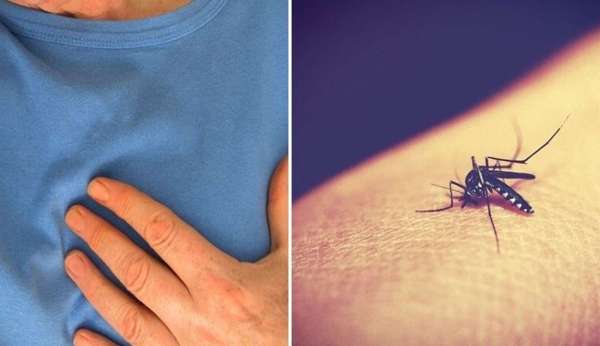
New Delhi: Saima Wazed, WHO South-East Asia’s Regional Director, emphasized the need for sustained political commitment and investment in the battle against malaria on World Malaria Day, which is celebrated on April 25 every year. The RBM Partnership to End Malaria and WHO are collaborating this year to promote the theme “Malaria Ends with Us: Reinvest, Reimagine, Reignite.”

“World Malaria Day, observed on April 25 every year, was established by WHO Member States during the World Health Assembly of 2007,” Wazed said in a statement. It is an opportunity to draw attention to the need for ongoing funding and enduring political will for the prevention and control of malaria. WHO is supporting the grassroots initiative “Malaria Ends with Us: Reinvest, Reimagine, Reignite” this year with the RBM Partnership to End Malaria and other partners. The goal is to expedite the eradication of malaria by reviving efforts at all levels, from community action to global policy.
“We are at a turning point,” she said. It demands a change from a business-as-usual attitude to a whatever-it-takes mentality and is full of both enormous potential and problems. In the battle against malaria, our area has achieved great strides. The only WHO area to have achieved the Global Technical Strategy (GTS) 2020 targets for lowering the number of malaria cases and fatalities is South-East Asia. The challenging GTS 2025 and 2030 goals are within reach. We are still proud of the Maldives and Sri Lanka’s achievements in being declared malaria-free in 2015 and 2016. Four of our nine endemic nations—India, Nepal, Bhutan, and Timor-Leste—have seen a decrease in malaria incidence of more than 63% since 2015. Bhutan and Timor-Leste are about to be eradicated.
Wazed further emphasized that the efforts are made more difficult by the Greater Mekong Subregion’s ongoing drug-resistant malaria, changing vector behaviors, pesticide resistance, and climate change.
Other risks include hard-to-reach populations, brittle healthcare infrastructure, and dwindling foreign investment. Our regional goal of eliminating malaria by 2030 is just five years away,” Wazed said.
She went on, “We need to move decisively if we want to achieve — Reinvest: It’s critical to maintain financial stability. Due to growing financial limits, mobilizing domestic resources must be our first priority, and we must make the most of the money we already have. Eliminating malaria requires investment rather than expense. It lowers healthcare costs, increases worker productivity, and has major positive social and economic effects. This is a wise, high-return investment to finance.
“Reimagine: Our response must change as malaria dynamics change,” she said. Innovations in service delivery and product development must be welcomed. Especially in high-burden nations, digital health systems may improve monitoring and facilitate real-time decision-making. It is essential to have robust monitoring systems that can quickly identify hotspots for transmission and react with focused treatments. Adaptive service delivery strategies are necessary in conflict-affected regions to provide continuity of treatment and Reignite: The battle against malaria requires urgency, passion, and dedication in addition to strategy and financial resources. Eliminating malaria must continue to be a national priority, which requires political leadership at the highest levels. Frontline healthcare professionals need encouragement, support, and acknowledgment.
Wazed further emphasized that the battle against malaria is a shared effort that requires the dedication of every person, community, and partner, and that governments and health organizations are not the only ones responsible for it.
“Let us keep in mind that governments and health organizations are not only responsible for eradicating malaria on this World Malaria Day in 2025. Every person, every community, and every partner must be dedicated to this common goal. We can put an end to malaria. Let’s rethink our strategy, reinvest in tried-and-true tactics, and rekindle our shared resolve. Because malaria really stops with us, we can fulfill our pledge to eradicate the disease from Southeast Asia by 2030,” Wazed said.